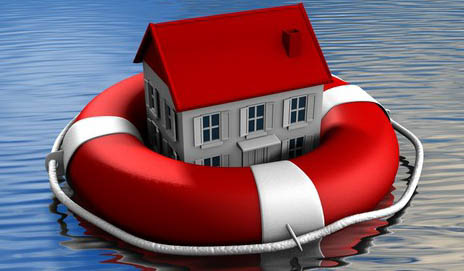Water Leak Damage and Insurance

About 95% of leak detections are part of an insurance claim for water damage. Depending on the insurance company, we find that dealing with an insurance claim can seem to be worse than the leak!
Whilst we cannot offer formal advice or assistance with a claim directly with the insurer as this is an FCA regulated role, we have a wealth of first-hand experience in how the average claim proceeds and our customers’ experiences.
You are welcome to ask our engineer to look at your policy as part of our leak detection process. The terms used are relatively common, and they are pretty familiar with finding the bits you need in the policy documents.
Insurance companies sometimes make errors in dealing with claims, leaving their customers without cover or grossly underquoting works and costs. Therefore we recommend using an independent, FCA registered claims handler to act on your behalf. We have first-hand experience with several companies that will deal with insurance claims and undertake restoration works.
UKLD is not linked to any particular claims management company. We have seen good performance from a few, but others we would avoid like the plague. We do know that a claim management company that can deal with the claim well; is a far better option than trying to reach a fair settlement on your own with the insurer.
Why allow an insurance policy costing a few hundred pounds to dictate what happens to your home worth hundreds of thousands?
If you have kids or grandchildren, I’m sure you have seen Disney’s ‘The Incredibles’, the video clip has some humour, but Disney’s writer of ‘The Incredibles’ must have worked in insurance, as the clips below show.
Someone writing Disney’s ‘The Incredibles’ hit the nail on the head when they made this!
Understanding the process
A phone call is usually the first contact when making an insurance claim. In our experience, this call is often a point where confusing information is exchanged, and it is the primary cause of most future problems our customers experience.
1. Read your documents before contacting your insurance company
2. Understand what they will and will not cover before you call
3. When you call, take notes & refer to the relevant parts of your documents
Your insurance company will have an array of policies; covered in yours may not be available to the operative when you call; often, they will err on the side of caution and tell you something is not covered that you later find is.
Understanding what is insured & where responsibility starts and stops.
While hopefully, your insurance company will be sympathetic and helpful, we find that some people expect the insurance company to “take over” and deal with everything for them. This is not usually the case, but they may send a ‘Loss adjuster’ to liaise with you, assess the damage and cost to repair.
To speed up getting a leak stopped and limit the damage, insurers usually expect you to deal with the leak and reimburse you later. This gives you the time to thoroughly investigate your options and take time to research your claim.
Before contacting your insurance company, read your documents.
If you cannot find them, look on your insurer’s website; if this is not possible, you can ask for a copy. It is best to deal with an insurance claim with your documents in front of you and have made yourself familiar with them.
Understand phrases referred to and what is relevant to you.
Your documents will have all sorts of information, most of this is not relevant to a water leak, and certain words and phrases are commonly used. It is essential to understand how ‘escape of water’ and ‘trace and access’ interact.
An example would be a leak from pipes hidden in a concrete floor:
Escape of water cover would repair the damage caused; however, there is no visible damage. Accessing the leak causes damage, and escape of water would not strictly cover this, but trace and access would.
Repair
Almost exclusively, insurance will not pay for the repair to be carried out; this is considered to be the maintenance of the property. This can sound bizarre when often it is nothing more than a minor plumbing fitting that has failed. However, it is logical when it could be a large value item such as a boiler at fault. However, if a leak has caused rust to block a heat exchanger, then this could be considered as consequential loss from the leak.
Betterment
Your insurance company has a responsibility to return your property to the same condition as you enjoyed before the leak.
As new flooring and decoration will be ‘new’, this will often be ‘better’ than immediately before the leak occurred. It will, however, be the same materials as before. If you had vinyl flooring and emulsion walls, then this is what will be restored; you cannot expect marble floors.
The reverse is also true; we have met clients with £10,000 solid parquet floors, who have been told they must accept £100 cheap laminate flooring as a replacement. This, not correct or fair as the ‘risk’ insured was parquet and not cheap laminate.
Common terms used:
- Loss Adjuster – Assesses the scale, cause and validity of the claim.
- Risk – What is insured (your property)
- Peril – Cause of the damage or loss (water)
- Hazard – What has caused the damage or loss (e.g. split pipe)
- Escape of water – Documents refer to a water leak as “escape of water”, and the cover is for anything that this has damaged.
- Trace & Access – Most policies now include “trace and access”, and this is usually about £5000. This covers finding the leak (trace), exposing the leak (access) and the cost of repairing the damage caused during access.
With just one call, we can locate the leak and start to get your property back to its pre-leak state.
If you wish to deal with the insurance yourself, we will always provide what help we can; there are eight common steps when your home suffers a leak.
1. Read your documents before contacting your insurance company
Vital as claim telephonists often make mistakes on the phone (such as suggesting there is no claim or that certain things are not covered).
2. Understand what they will and will not cover before you call
You need to find the relevant subsections and wording of the cover documents, such as your excess amount, escape of water cover and notably ‘Trace & Access” cover.
3. When you call, take notes & refer to the relevant parts of your documents
To avoid the mistakes mentioned above, have your current documents to hand to refer to, taking notes (i.e. the name/date/time). If an error is made, you need to refer to the relevant subsection to explain where the cover is in place.
4. Arrange leak detection
Insurance will typically ask you to locate the leak at this point. As the location is unknown, the extent of the damage caused by the leak and what is required to access the leak cannot be calculated.
5. Arrange loss adjuster meeting
Often, the insurance company will send an ‘assessor’ instead, with little scope to settle the claim.
6. Check settlement “scope of works” is comprehensive enough
Does this scope include all the works required? We often find customers have an inadequate scope of works to dry and repair their homes.
7. Arrange 2 or 3 quotes
The insurance company will expect at least two quotes to cover the work required; they choose the cheapest. You must make sure you are happy to have this contractor; if you have any doubts, find another before using their quote.
8. Check settlement amount is enough to cover repairs
You may find the amount being offered is less than the lower quote. Insurance companies have fixed costs that can be artificially low and undoubtedly unavailable to you in the marketplace.
Our ‘no find-no fee’ service removes the danger of paying for failed leak detection, and our ‘Trace and Access’ invoices are always separated from repairs.
We had an underfloor leak which was discovered at the end of April 2018. The Company who traced the leak suggested that when we contacted the Insurance Company about our claim we should consider employing Aspray to act for us in managing the remedial works which would save the hassle of obtaining estimates ourselves.
David has been our contact throughout. He has project-managed the whole claim. He obtained estimates for removal of existing damaged wooden-flooring/carpets/tiles, and brought in de-humidifyers to dry out the floors. Once estimates were agreed with the Loss Adjusters, David arranged for the affected rooms to be re-decorated and for the wooden-flooring and carpets to be replaced. He regularly monitored progress as well as maintaining contact with the Loss Adjusters.
David has clearly cultivated reliable and efficient tradesmen and consequently was able to co-ordinate the remedial work with minimum disruption to our lives in the interim. Furthermore the standard of the workmanship was excellent.
David’s input to the project was considerable and this has removed much of the pressure and stress which we would have experienced had we not benefitted from his involvement. We feel that without him negotiating with the Loss Adjusters on our behalf the outcome would not have been as satisfactory.
Ann and I would like to express our thanks for his efforts. It is greatly appreciated


